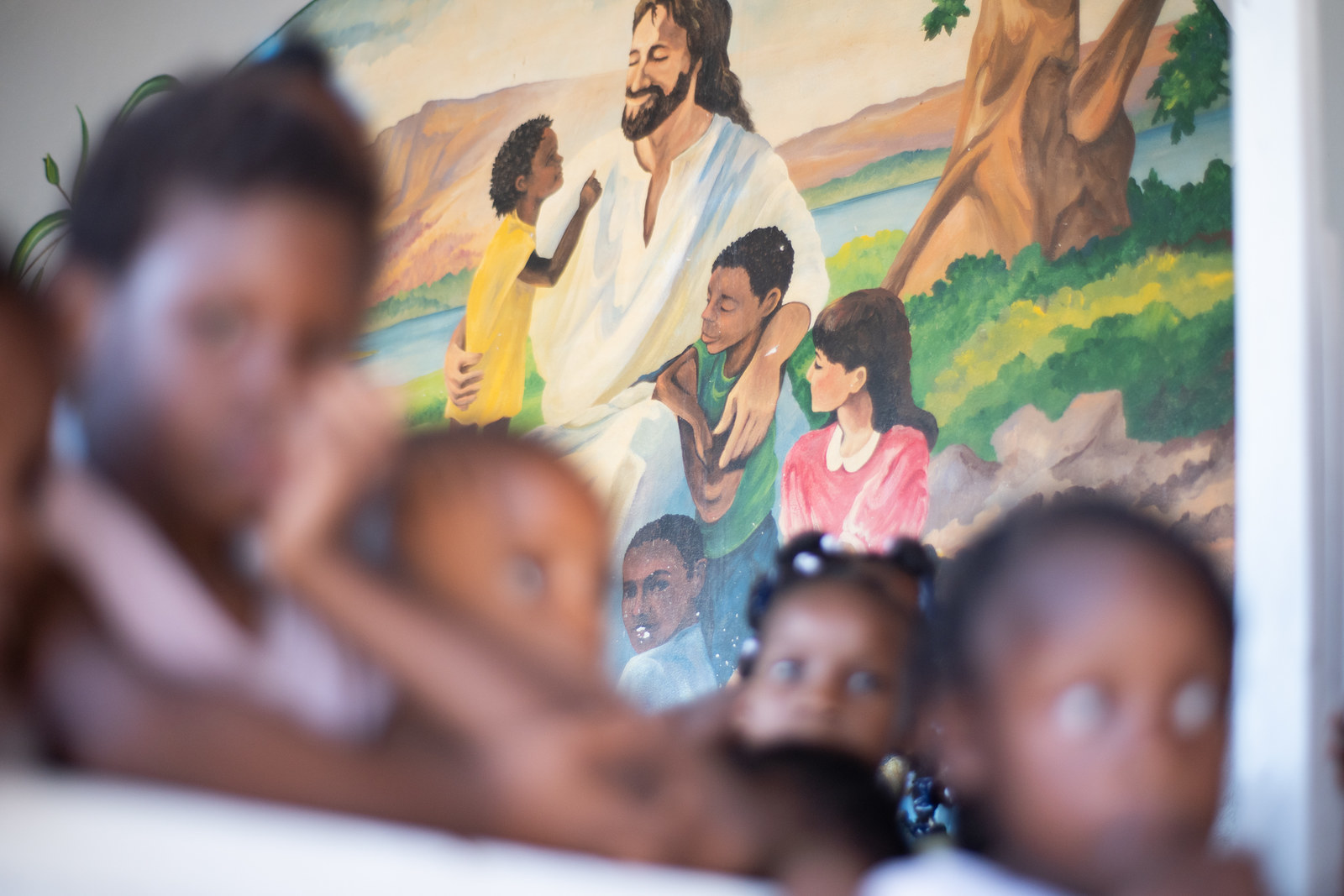PORT-AU-PRINCE, Haiti — After a young boy went missing from the Sœurs Rédemptrices de Nazareth orphanage in 2011, Haiti’s child welfare agency arrived at the facility and reportedly found three children who were so malnourished they had to be taken to the hospital. The founder, Dieudonne Pierre Bélizaire, was arrested on charges of kidnapping and child trafficking, and the orphanage was shut down. The children who lived there were transferred to other orphanages.
That should have marked Sœurs Rédemptrices de Nazareth’s final chapter, but in a country where these kinds of facilities have multiplied over the last decade thanks to an influx of Western funding, closing down a problematic orphanage is not so simple.
After three and a half years in jail, Bélizaire was acquitted of the charges, but Haiti’s child welfare agency, known as the IBESR, maintained its order that her orphanage remain closed. So Bélizaire reopened it “as a boarding school,” she told BuzzFeed News. A spokesperson for the facility said it now houses 20 children, though a staff member who briefly opened the door to a reporter in December said there are 50. The spokesperson said that they do not consider it an orphanage because the children there have parents who remain involved in their lives to some extent, but she acknowledged that the facility is not registered with any federal authorities as required.
The founder herself is rarely around — Bélizaire is now based in Florida, according to public records. But her presence looms large: A mural of Bélizaire in handcuffs is painted on the wall next to the main gate. “Merci, merci, merci,” it reads in French. Thank you, thank you, thank you.
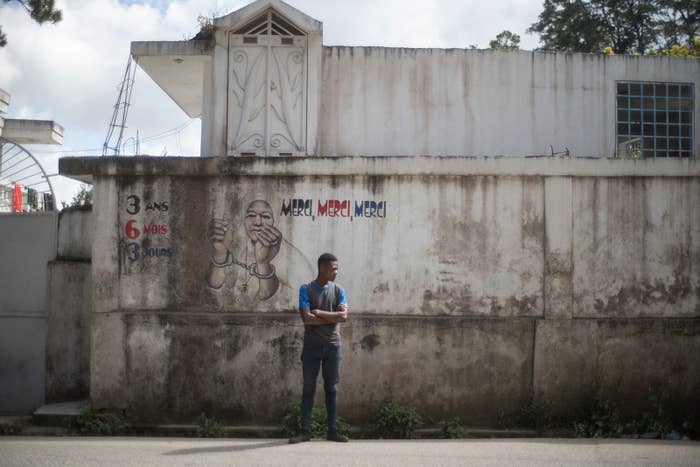
As for the children who had been transferred to other facilities upon Bélizaire’s arrest, some ended up at Chosen and Cherished Ministries, an orphanage founded by Joyce Trainer, a 38-year-old woman from upstate New York who first came to Haiti when she was 19. The child welfare agency has yet to assess conditions at Chosen and Cherished, one of the many orphanages that have popped up faster than officials can inspect them.
“A broken, old single lady can’t take care of 10 kids with a lot of trauma, but by the grace of God I have,” Trainer told BuzzFeed News. “This is my home, these are my kids.”
In Haiti, where half the population is under 25, there are few barriers to opening an orphanage, and fewer enforcement mechanisms for child welfare officials to hold accountable the people who operate them, leaving tens of thousands of kids caught in a sprawling system that annually draws more than $100 million from American and Canadian funders. The result, a BuzzFeed News investigation found, is a shadowy industry where kids routinely face abuse, exploitation, living standards that don’t meet state requirements, and sometimes death, while Westerners who fund, operate, or promote many orphanages face minimal oversight. Of the 576 orphanages child welfare officials assessed for its 2018 report, 307 were flagged for physical or sexual abuse, according to government documents obtained by BuzzFeed News. Since 2019, the state has closed four.
While many visitors flaunt their charity work on social media, much of what is occurring at the orphanages is, in fact, clandestine: About 85% of orphanages are not registered with the state, and most of the children in them are technically not orphans — 4 in 5 have one living parent, according to a study by Lumos, a London-based nonprofit organization.
“If someone is giving a donation and that person has goodwill, that person has the obligation to know if that money is well used.”
When BuzzFeed News attempted to observe conditions at Sœurs Rédemptrices de Nazareth, its vice president, Reginald Fouche, instructed staff to deny access to reporters, saying over the phone that it “is a very, very, very private place.”
BuzzFeed News visited seven orphanages in December and interviewed 12 current and former residents and staff members, as well as three government officials, and analyzed official documents and financial reports. The investigation has revealed an industry where some facilities have drawn in millions of dollars in donations to support a vulnerable population with nowhere else to turn — but conditions on the ground often fail to meet state standards. In one facility, staff said, the boys were routinely locked up in their dormitories during the sweltering afternoon heat and not permitted to go outside until after 5 p.m. Most of the children sang songs about Jesus for visitors on command. Some frequently spent hours a day picking vegetables that orphanage officials sold to local hotels. Some directors were absent, thousands of miles away in the US or elsewhere.
“If someone is giving a donation and that person has goodwill, that person has the obligation to know if that money is well used,” said Arielle Jeanty Villedrouin, director of the IBESR, the French acronym for the Institute for Social Welfare and Research.
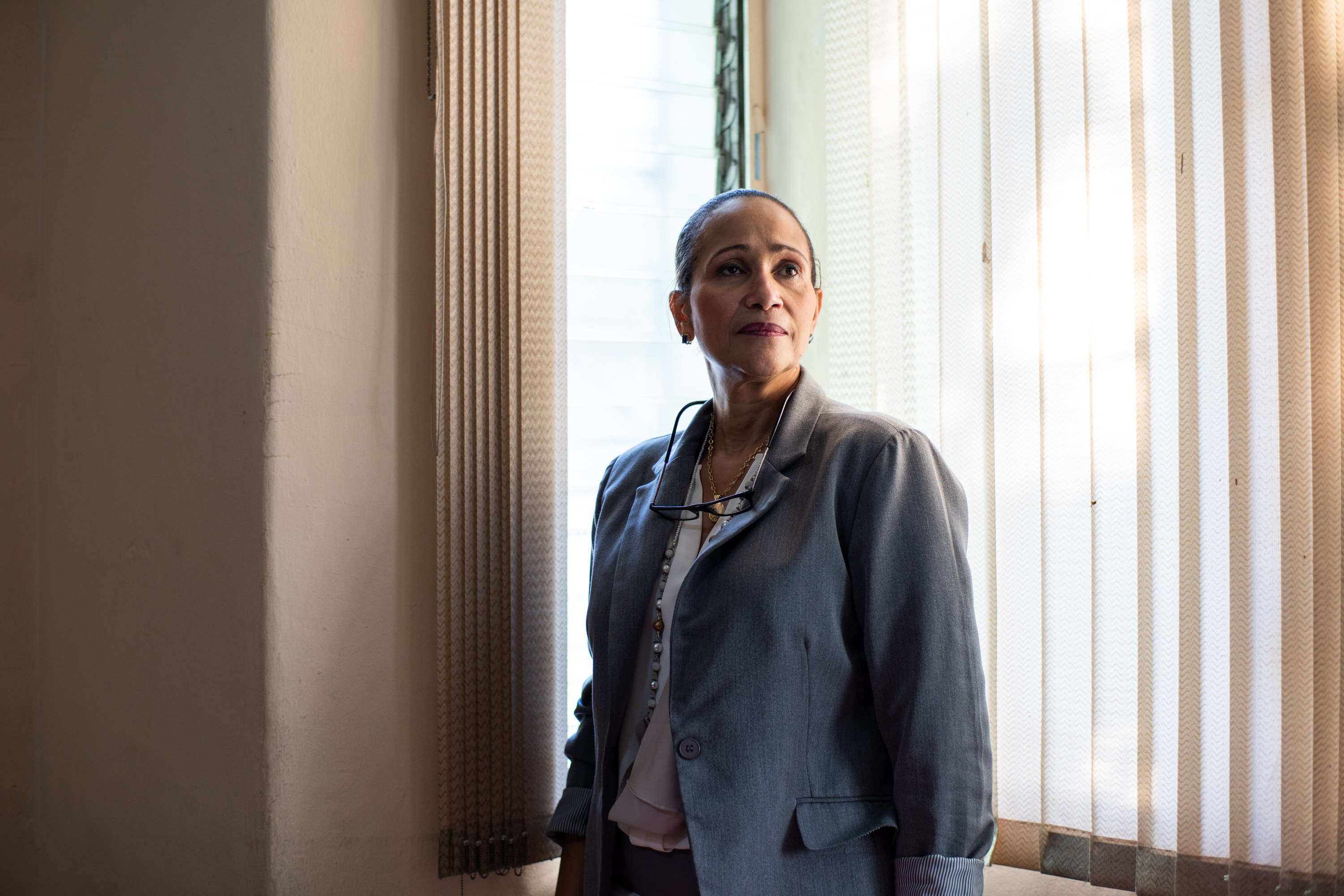
For years, planeloads of foreign missionaries have descended on the tarmac at Port-au-Prince’s international airport to spend a few days rocking babies on their laps and chasing toddlers around dusty courtyards in games of tag, often with hopes of shining a spotlight on the children’s plight to raise support for their cause. Villedrouin warned against generalizing all orphanages as troubled and said that some are doing things correctly.
In a country battered by natural disasters and rampant corruption, foreign assistance has flooded in as Western countries seek to help stabilize its institutions amid some of the most challenging circumstances in the world: from the gang violence that has frozen swaths of Haiti to the poverty that leaves thousands without regular access to food to the political upheaval that has nullified the power of most state agencies.
Regulating orphanages has been low on the government’s list of priorities. IBESR’s $1 million annual budget, a speck in the country’s $1.9 billion in expenditures, limits officials’ ability to act on allegations of abuse. According to Lumos, it cost nearly $28,000 to shut down a single orphanage in 2016.
On the surface, Western aid efforts seem benevolent: North American orphanage founders or donors — generally affiliated with US-based Christian churches — put up photographs of children on orphanage websites, drawing visitors into the kids’ hardship and hope and promising that their help will make a difference.
“Deborah was very weak from the time she was born,” reads one account from Mission of Grace, an orphanage 32 miles northwest of Port-au-Prince.
“Elizabeth came to us very thin and she did not engage well with people. She was 7 months but looked like she was 4 months.”
“The family is into voodoo and we prayed and prayed over Marcellin and truly fought for her life because the parents had put special curses over her.”
“Sponsor Now.”
Yet, for many of the kids living in them, orphanages don’t offer a bridge to a more comfortable life. Instead, they often mean lasting traumas that their young residents carry even after they age out of the system at 18.
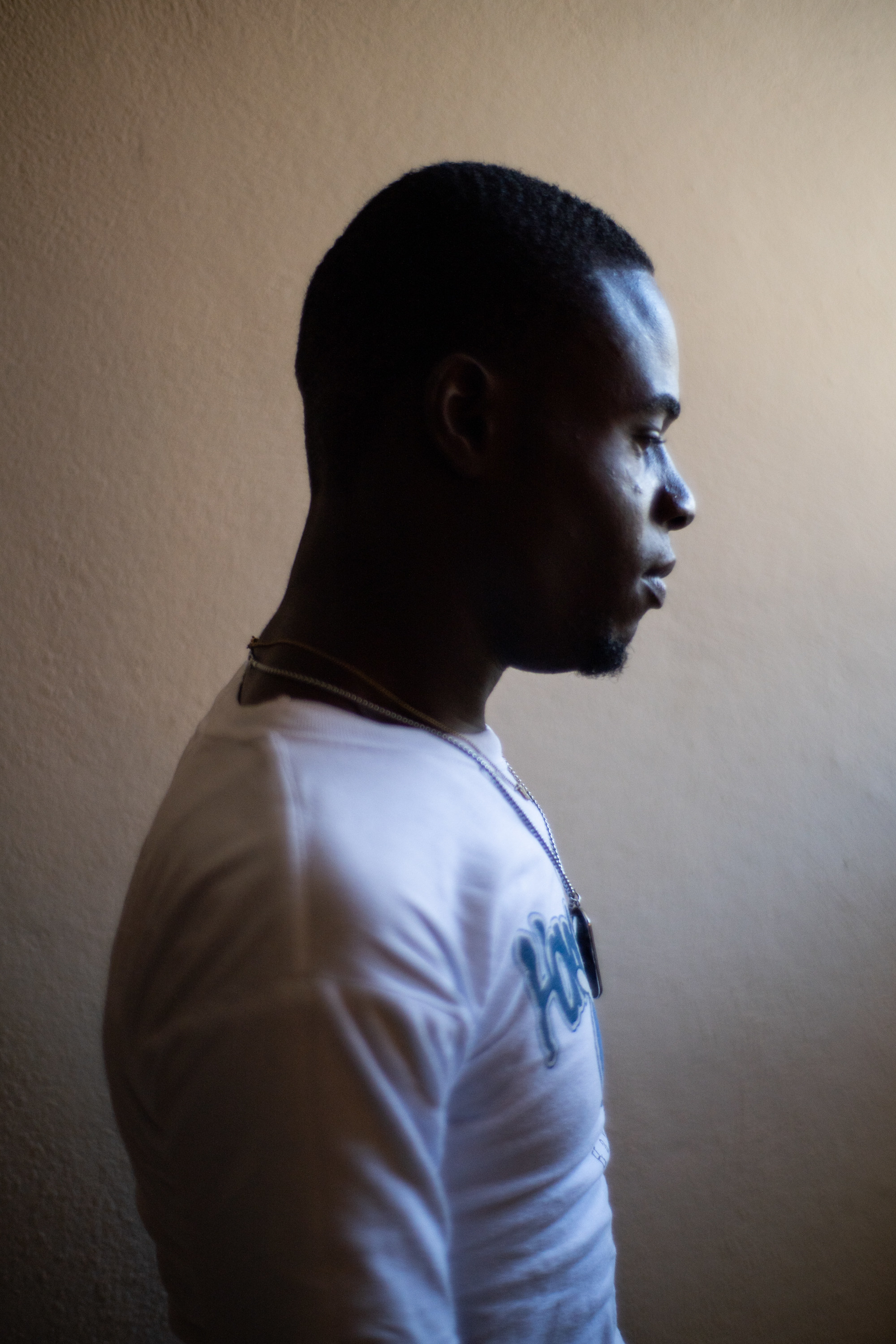
Augustin Duverson said he grew up not knowing his birth date with certainty or the names of his relatives. His mother had abandoned him in a hospital as an infant, and he ended up at La Maison l'Arc-en-Ciel, an orphanage that specializes in caring for children who live with HIV or have parents who do.
Duverson’s most vivid childhood memories, he said, were the punishments he faced whenever staff accused him of misbehaving: Some days, he said, he’d have to stand facing the wall encircling the orphanage, under the baking Caribbean sun, for what felt like half an hour. Others, when he struggled to wake up at 4:30 a.m., he said the director beat him with closed fists.
“I was told by the staff that I was breastfed by dogs and pigs,” Duverson said.
“He’s mad at us because we didn’t find his family.”
In an evaluation of the orphanage system, the state later flagged La Maison l'Arc-en-Ciel for abuse that included punishing children through isolation, prohibitions on recreational activities, and restrictions on seeing visitors. Danielle Pénette, the orphanage’s founder, said no kids were physically abused, and the government’s findings centered on children eating alone if they had misbehaved. She said she’s unaware of employees demeaning Duverson, and that such language would be “totally unacceptable.” The orphanage, she said, provides a “program of learning, participation, self-esteem, and capacity building.”
Now 26, Duverson, broad-shouldered and diligent about wearing sparkling clean clothes and sneakers, is trying to track down any trace of his blood relatives. He has few clues to work with — and that fills him with resentment.
“He’s mad at us because we didn’t find his family,” Penette said.
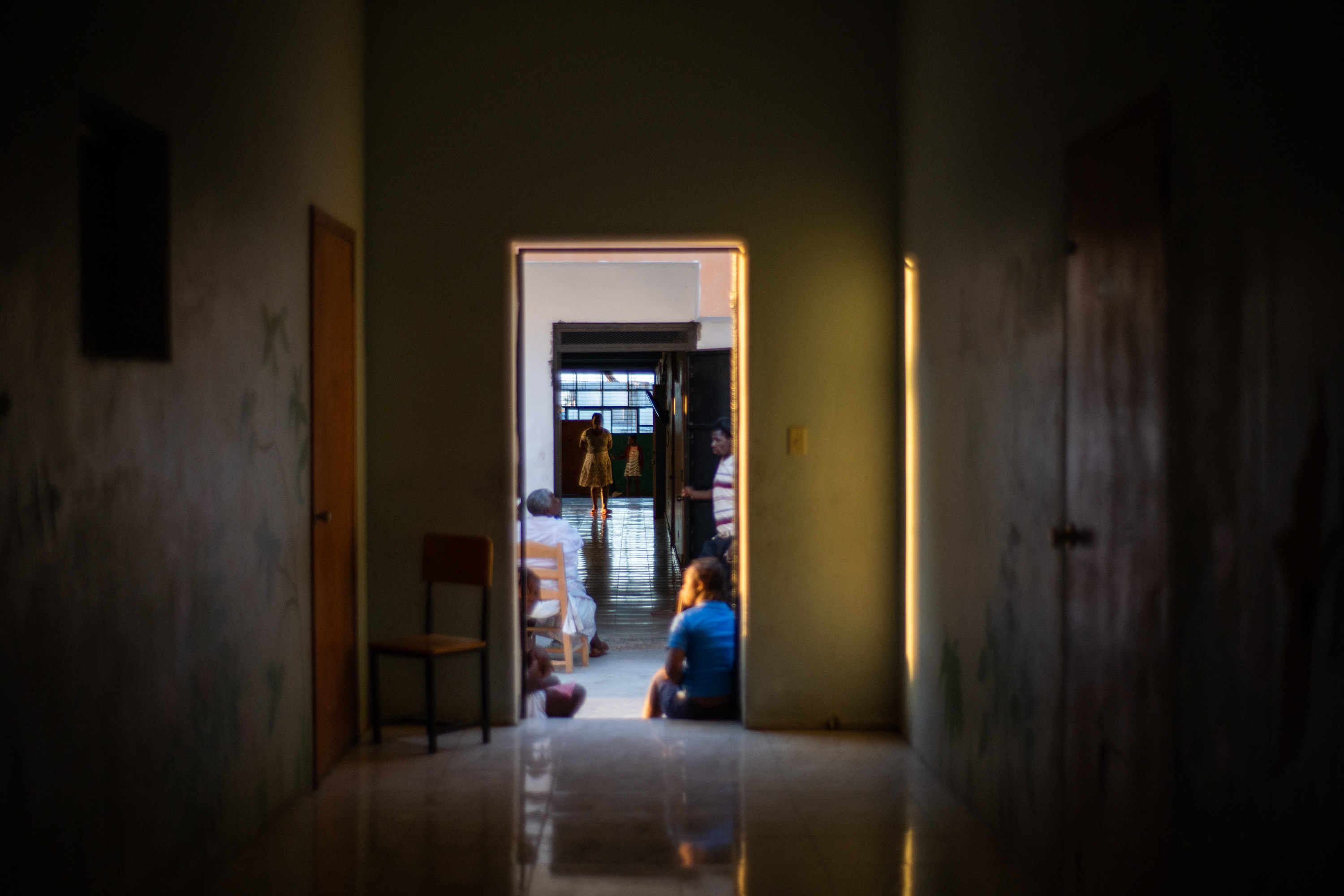
Before 2010, there were fewer than 100 orphanages in Haiti, according to Villedrouin, the head of IBESR.
Instead, orphans and children from families living in poverty were often entrusted to wealthy families who agreed to feed and house them in exchange for domestic work. Known as restaveks, many of these children were beaten and raped, forced to work grueling hours, and barred from going to school.
By the turn of the 21st century, grassroots movements sprung up to eradicate the centuries-old practice. In 2007, the Haitian Parliament ratified a UN convention banning child labor. Three years later, an earthquake struck Haiti, flattening entire swaths of the country, killing nearly 250,000 people, and leaving behind tens of thousands of orphans.
Survivors erected tent cities after the earthquake, and soon images of dazed-looking kids on the streets galvanized the international community in an outpouring of support. In total, $13.5 billion was donated or pledged to aid Haiti’s recovery efforts.
During the next three months, more than 1,000 orphans were authorized for expedited adoptions in the US as part of a humanitarian program, including one of two Haitian children who were adopted by Supreme Court Justice Amy Coney Barrett.
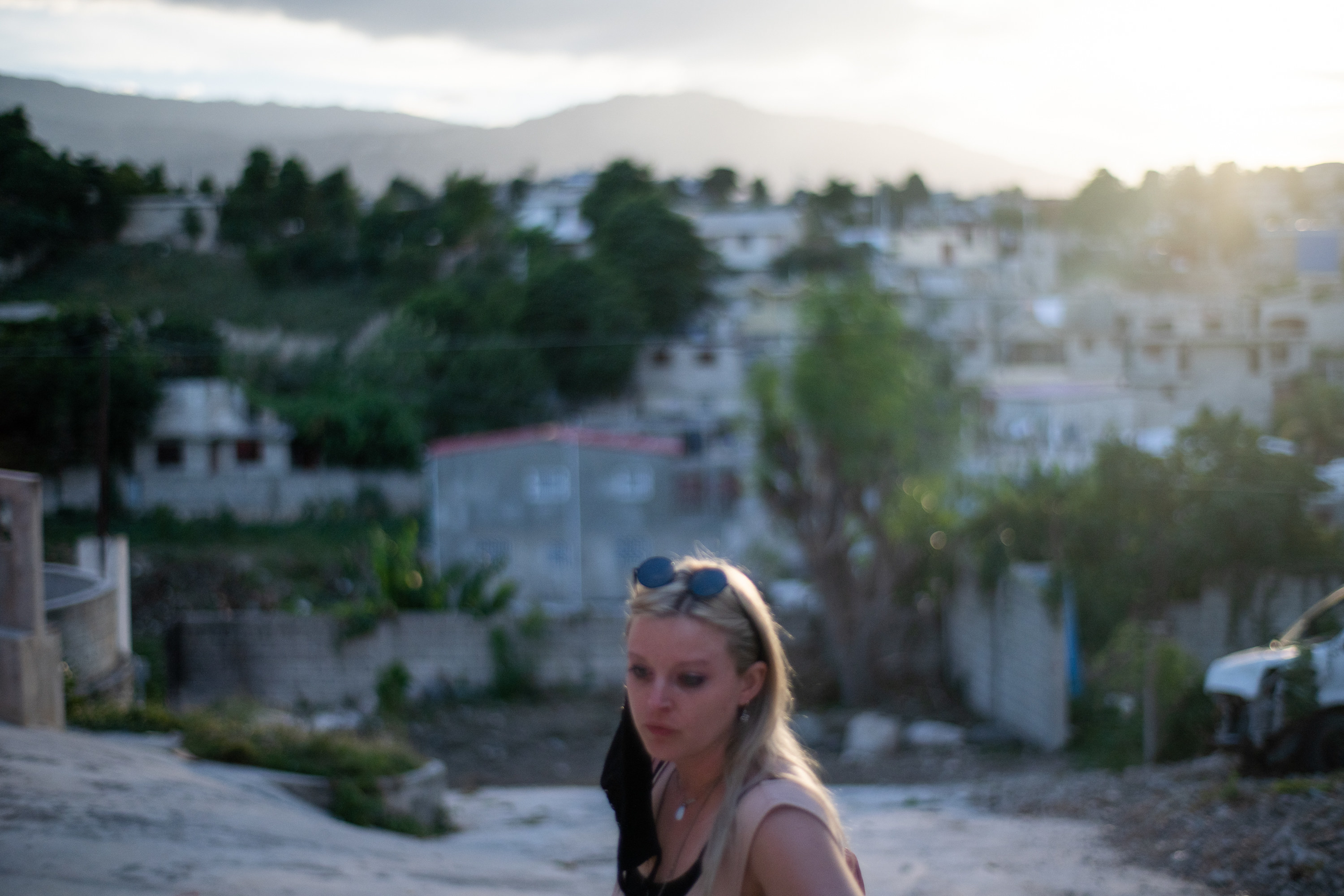
Mac Archer was 15 when she first visited Haiti in 2009 through a program at her church. During her first few trips, she remembers feeling a sense of gratification as she gave out coloring books and wrote “I love you” on one of the outdoor toilets she helped build.
“I played with children and didn’t even ask them their names,” said Archer, now 28, during a recent trip to Port-au-Prince. “Looking back on it, I could cringe.”
In 2012, during her fourth mission trip, she started noticing strange things, like the time she returned to an orphanage where she had played with children a few weeks earlier and found it empty.
“I realized something was not right, but I didn’t know what was wrong,” Archer said.
A few years later, she remembers going to Hope Home, an orphanage for children with disabilities. She and the group of missionaries she was with were allowed to take the kids to a beach in southern Haiti. Some of them were unable to sit up or feed themselves. They laid the children out across the bus seats and then on plastic tarps on the sand. Then, they took them one by one into the water.
“It was a shitshow giving them food,” Archer said. “Two or three of them almost choked.”
In a letter to BuzzFeed News, Thad Newman, director of the Canadian Foundation for the Children of Haiti, which runs Hope Home, said that those who work with marginalized people in Haiti lack the resources that those in affluent countries have access to. “However, with ingenuity and care they are committed to not only providing day-to-day care to the residents but also to, whenever possible, bringing joy to those living lives of suffering due to poverty and their physical condition,” Newman said.
IBESR uses a color system to rate orphanages: green ones meet the minimum standard, yellow ones must make improvements, and red ones require immediate closure. Hope Home has been rated green or yellow at various points but its status is currently “pending,” according to Vanel Benjamin, an IBESR official.
“Half my life spent in Haiti was causing trauma.”
Archer’s suspicion grew, and she became openly critical of trips like the ones that first brought her to the country. Today, she is writing her PhD dissertation on the emotional labor of children in Haitian orphanages — the long-term impact of having to “put on a show for strangers,” she said — and has permission from the government to access these facilities. She accompanied BuzzFeed News to several orphanages in December, and BuzzFeed News paid for her lodging and meals during that time.
“Half my life spent in Haiti was causing trauma,” she said.
While Archer kept going back to Haiti, the number of orphanages there were multiplying. Large groups of missionaries streamed into the country with gifts and cash. Some opened their own orphanages or partnered with Haitians who already had one. Many hired koutye yo — “brokers” in Haitian Creole — who fanned out across the countryside and convinced impoverished families to give up their children by promising to provide them with food and education — and even adoption.
After the 2010 earthquake, Claudette Jean Francois, a 43-year-old Haitian who said she has been taking care of children “informally” since she was a teenager, picked up 16 kids, took them to her house, and founded the One Way Children’s Home orphanage, which has a green rating from IBESR.
Two years after the earthquake, Villedrouin’s agency did its first survey and identified 752 orphanages and 21,286 children who lived in them.
Most humanitarian aid bypassed the state amid fears of government corruption and went directly to private organizations, making it nearly impossible for authorities to track how it was used. This allowed many orphanage founders to use children “as commercial leverage,” said Villedrouin, who oversees the country’s orphanages. The orphanages that responded to BuzzFeed News denied using children to make a profit or using brokers to bring kids to their facilities.
When Kim O’Dwyer arrived in Haiti from Canada days after the earthquake, she met Linotte Joseph, the Haitian founder of Mission of Grace. With O’Dwyer onboard, the orphanage swelled from housing 9 children to around 70 within a few years.
On its website, each child has their own page, with a headshot and a short biography. Many have parents, as stated on their profiles, and all are available for sponsorship. Visitors can also buy water bottles with the orphanage’s logo. A few streets from the orphanage, at a hotel owned by Joseph, Mission of Grace T-shirts and tote bags sell for $20 and $15, respectively.
Westerns who lodge at Joseph’s hotel during their mission trips to the orphanage pay as much as $95 a night. There, they can sunbathe or go snorkeling in the azure waters. “While these types of accommodations and amenities are not usually a part of a mission trip to a developing country, we find that having the ability to cool off and rest well after a long hot day of service gives you the strength to get up the next morning and do it again,” reads the Mission of Grace website.
Today, 120 kids live at the orphanage, according to Aniece Salmonis, a nanny at Mission of Grace. Inside, children mingled in the shaded areas around the dusty central courtyard before sitting down for lunch at one of the picnic tables. Some were barefoot, and one girl carried around a purse made of notebook paper, with a handwritten “I love you” on it.
Salmonis took a group of reporters on a tour of the orphanage. First, she gathered about 30 of the smallest boys and girls and asked them to sing.
“We are happy to see you! I’m going to give you a big handshake!” the children said in unison.
Then she brought out the preteen girls to sing. When they finished, she walked across the yard and unlocked the chain that kept the teenage boys in their dormitory for up to four hours every afternoon after school. They “are troublemakers,” slapping and fighting each other during the sweltering afternoon, Salmonis said. But singing for visitors was an exception, and Salmonis ushered them out for a few minutes.
Later, in response to questions, Elizabeth Joseph, Linotte Joseph’s assistant, told BuzzFeed News that children are not required to perform for guests and said that the boy’s dormitory “is locked solely for the protection and safety of the children.” She added that the orphanage is home to orphans and children who are separated from their biological families. “To suggest that any of the children in our orphanage have ‘parents’ is deeply insensitive and incorrect,” she said. Mission of Grace is rated yellow by IBESR.
After the older boys performed, Salmonis brought out the oldest girls, one by one. “It’s important to smile when people come to visit you,” she said to the 19- and 20-year-olds in Haitian Creole. None of them smiled.
“Are you happy to see them?” she asked, referring to the reporters.
“Yes,” they muttered.
“Would you like to see them again?”
“Yes.”
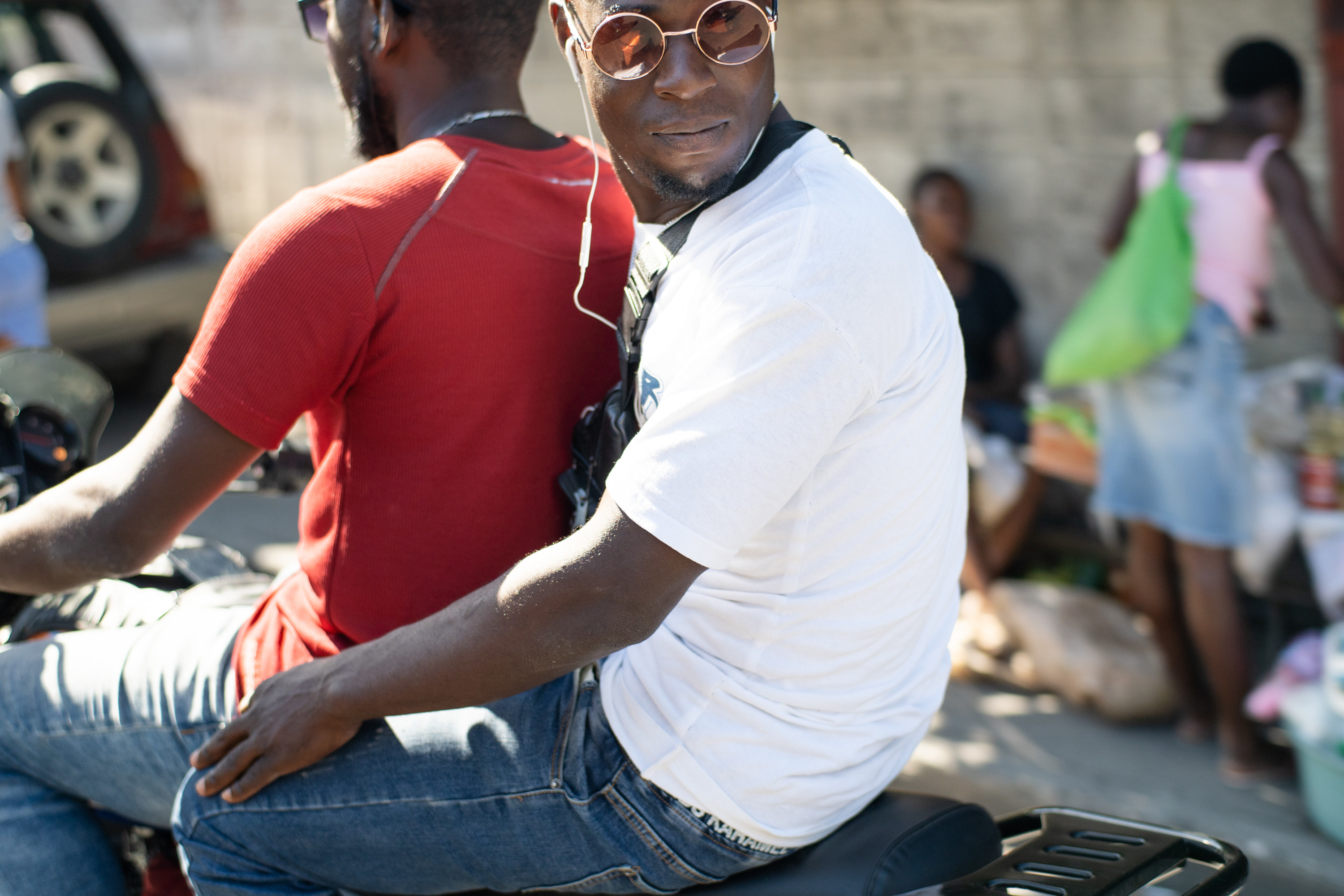
As a child, Duverson wanted to confide in the visitors about the punishments he saids he experienced, but they didn’t speak Haitian Creole and he didn’t speak English. Instead of talking to the kids, the missionaries looked around the large lobby at La Maison l’Arc-en-Ciel, the well-supplied nurses’ station, and the impeccably clean dormitories. They walked around the 7 acres of banana trees and bean harvests, saw the rabbit breeding area, and admired the beekeeping stations.
Duverson had ended up at La Maison l’Arc-en-Ciel when he was 18 months old after the first orphanage that took him in tested his bloodwork, which showed that he had antibodies for HIV, a sign that his mother likely had the virus.
When he arrived there, he tested negative, said Danielle Pénette, the founder of La Maison l’Arc-en-Ciel. By then, she had already decided to keep him.
“We cannot give you back the child, it’s a family setting,” Penette said she remembers telling the other orphanage about her own facility.
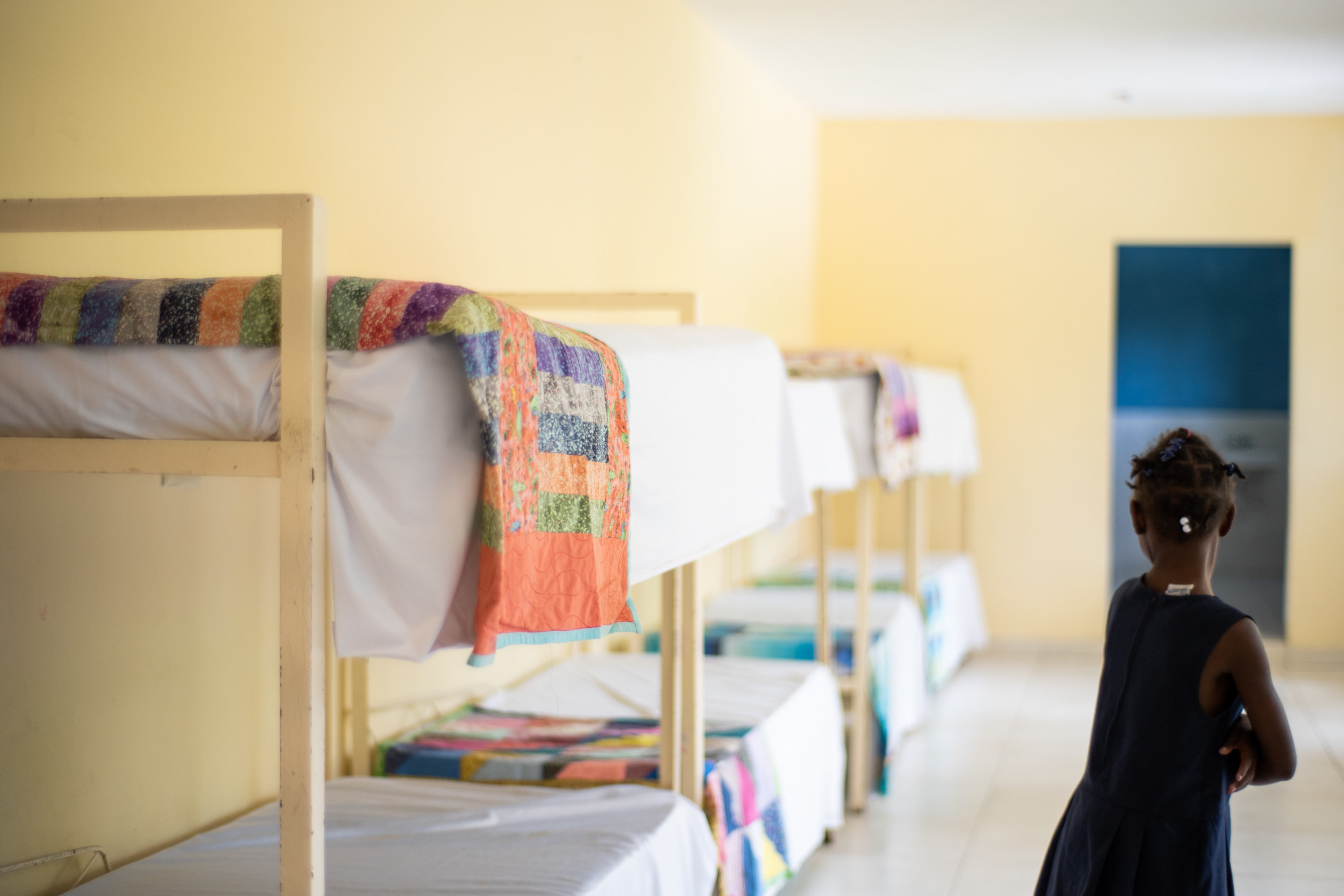
Pénette said nobody misled Duverson into thinking he had HIV. But he remembers it differently. When he was 11 or 12, Duverson said, a nurse at La Maison l’Arc-en-Ciel told him he had the virus. He believed the pills he took daily were part of the treatment — though Pénette said they were vitamins or antibiotics. He thought that the constant rashes on his skin were a symptom of the infection, rather than the result of his regularly wetting the bed.
He stopped going to school around fourth grade because he wasn’t doing well and the orphanage stopped paying his tuition, he said. Penette said that Duverson was taken out of school because he was underperforming, and that he was placed in a technical school to learn masonry instead. But after a while, he began skipping those lessons, pocketing the bus money, and forging signatures on falsified school reports, Penette said.
Duverson said that he would spend many of his days tending to the gardens as the director hovered over him. Some of the vegetables grown on the grounds are now sold to local hotels. He and the other kids were paid for the work once they left the orphanage, he and Pénette said.
Duverson said he left the orphanage in 2013, when he was around 18, after the director accused him of theft and kicked him out. Though he was no longer taking any pills once he was out on his own, he did not feel any differently. He went to a clinic to get an HIV test. He couldn’t believe the result, so he went in for a second one. Both were negative.
“They were making money off of me.”
He said he believes that the orphanage staff deceived him for much of his life. As one fundraising website calling for donations to La Maison l'Arc-en-Ciel, which currently houses 26 kids and also goes by the name Rainbow House, notes: “Specialized care of infected children is costly.”
“They were making money off of me,” said Duverson, who received a third negative test result in December.
Penette disputed Duverson’s claim but acknowledged it reflected “a widespread perception among the Haitian population for several years that all organizations make money on the backs of beneficiaries."
God’s Littlest Angels, a Colorado-based nonprofit that took in kids from Bélizaire’s once-shuttered facility, received $1.5 million in contributions and grants and declared a net income of $183,317 in 2018 for its mission “dedicated to helping the children and families of Haiti by providing intensive nursery care for premature, malnourished, and abandoned children,” according to its tax filings.
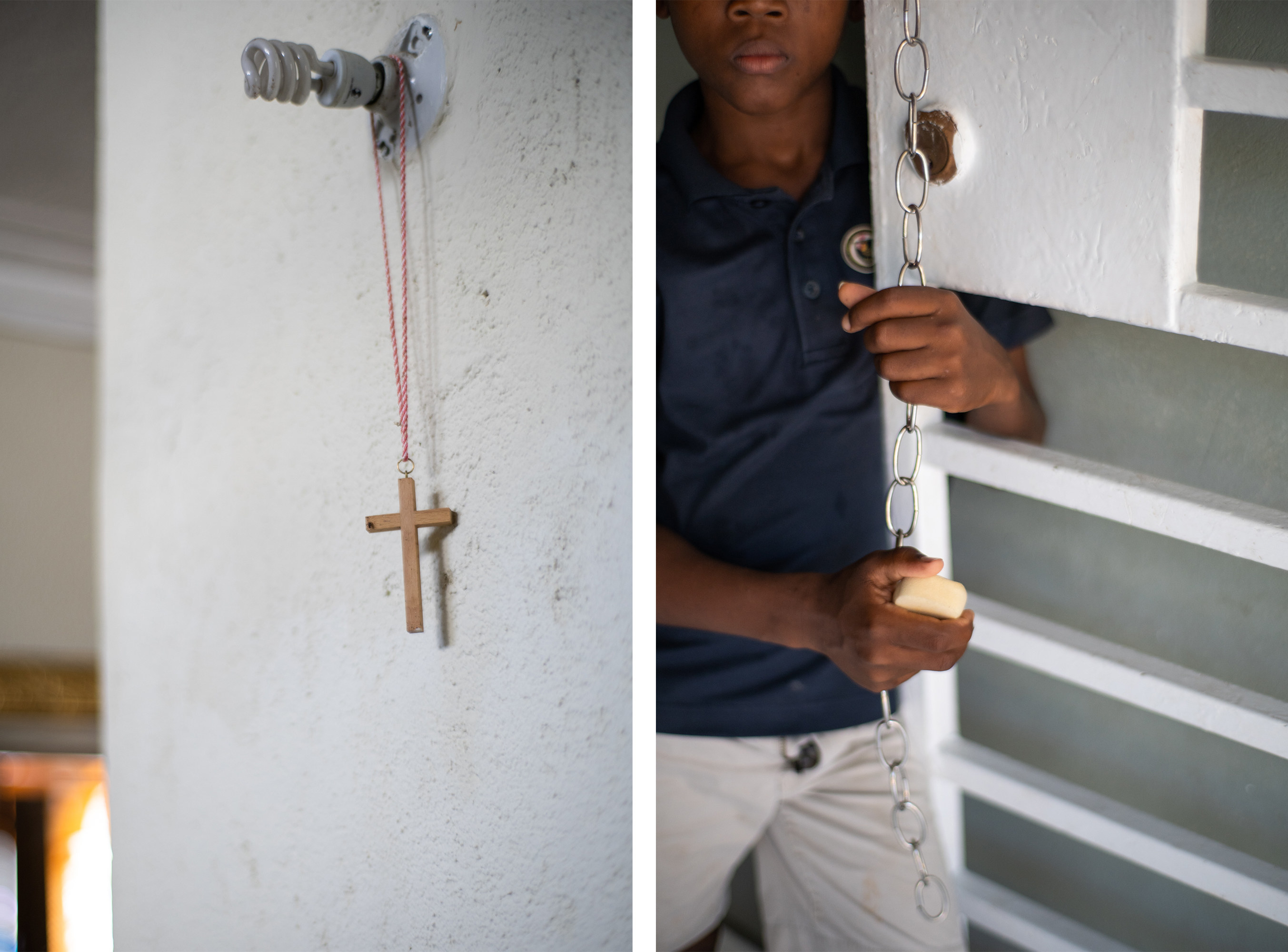
Another orphanage, operated by the Pennsylvania-based Church of Bible Understanding, reported making $4.3 million in net income in 2017, describing that “a large part of our operation is to fund our missionary work in the impoverished country of Haiti,” according to its tax filings. In 2018 and 2019, the organization lost a combined $1.7 million in net income, according to the filings. An antique business owned by the group, which has three stores in New York City and one in Los Angeles, sells chandeliers for as much as $95,000 on its website, which says it is funding “charitable work in Haiti” by “bringing hope to some of the most vulnerable” children there. But the church has not provided for a generator, even though power failures were frequent, leaving residents to use candles. Authorities reported one of those lit candles may have caused the fire that blazed through the orphanage’s dormitories in 2020, killing 13 children and two adults.
The church did not respond to a request for comment for this story. A lawyer for them, the Associated Press reported, said it has been “unfairly singled out by critics in Haiti and overseas,” adding that other US groups solicit donations for Haitians and send only a fraction to the country.
As Duverson and other teenagers aged out of the orphanages, new generations of kids filled the beds they left behind.
M18 Rescue is an Ohio-based organization that aims to “bring relief to the less fortunate” internationally. The group didn’t respond to requests for an interview, but in a video posted to its Facebook page in 2018 and geotagged in rural Haiti, a white woman rocks a toddler in her arms while more than half a dozen children sit in a van as a group of locals looks on.
“Please keep these families and sweet babies in your prayers. This was their parents loading them up and saying goodbye so they could go with us. The babies woke up this morning screaming for the parents because they don’t understand that if they don’t go with us they will die,” stated the caption in the video, which has since been deleted.
“God will provide for them. I believe it!!!!!”
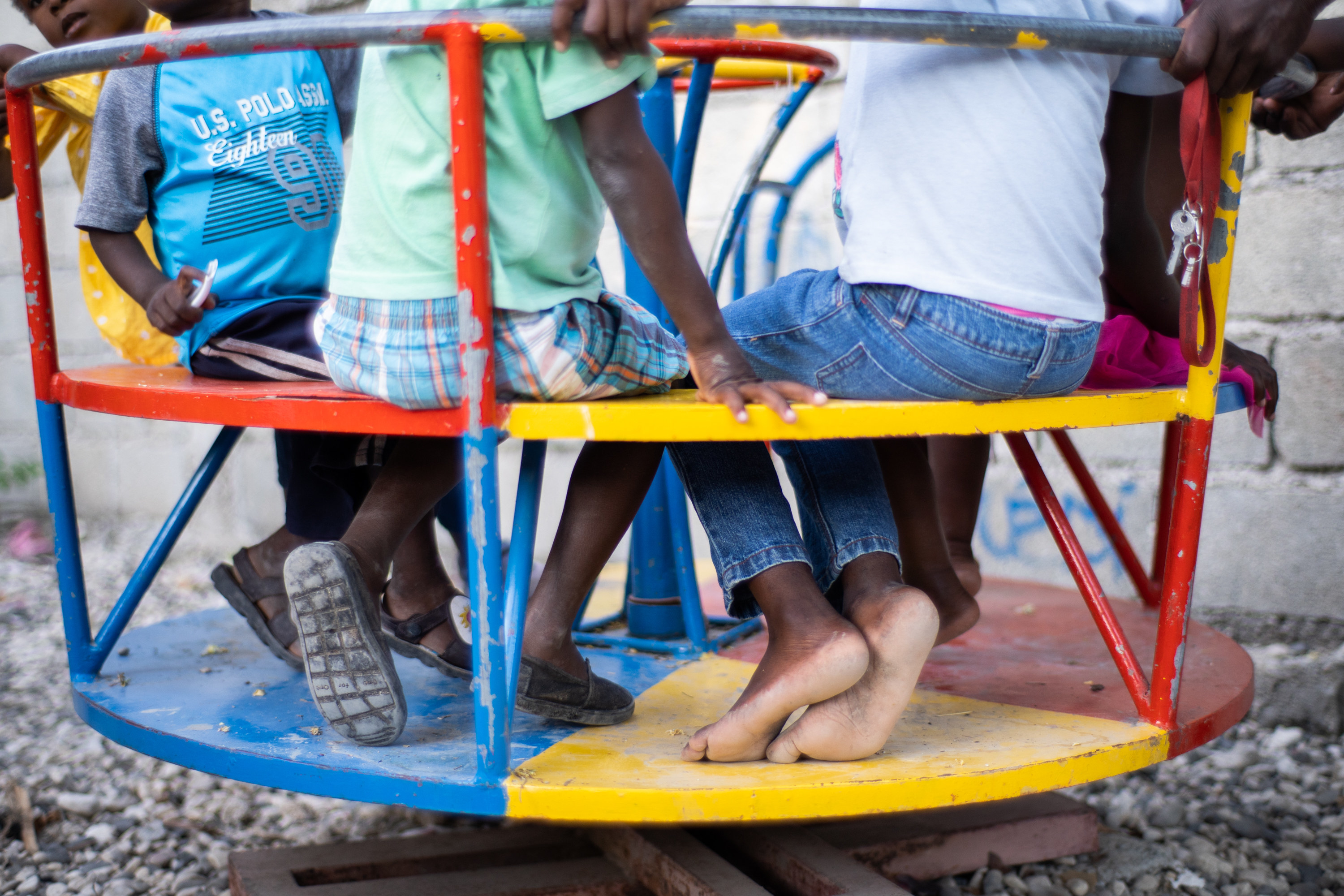
After identifying more than 750 orphanages in 2012, the state agency shut down around 200, but new ones continued to pop up, and some that were shuttered had reopened in new locations and under new names. In 2017, IBESR identified 754 orphanages across the country. Some have refused to grant IBESR access to their properties. Others have moved children to other facilities without notifying anyone — including parents.
For an evaluation published in 2018, IBESR surveyed 576 orphanages and counted nearly 26,000 children in the system. Only 35 orphanages met the state’s standard of care. Of the nearly 400 that received a “red” rating, meaning they needed to be shut down, 307 had signs of physical or sexual abuse.
Determined to take control of the proliferating industry, IBESR issued a moratorium banning the opening of new orphanages that year. A movement to help children in orphanages find their families began to gain traction. A foster care system began to emerge as a promising alternative. That year, the state accredited, trained, and certified about 100 foster families, according to Lumos.
After the evaluation was published, managers at some orphanages requested a hearing with IBESR to dispute the findings. Some dismissed abusive staff and ceased harmful practices, said Benjamin, the IBESR official. Within a few years, La Maison l’Arc-en-Ciel, which fired two staff members for alleged abuses, and 119 other orphanages were able to get a green rating, meaning they are authorized to operate.
But often, it has been business as usual even after abuses are uncovered. Employees at Ohio-based Christian Aid Ministries admitted they knew for years that one of its employees was sexually abusing at least 30 minors yet the organization allowed him to continue working until 2019, when he returned to the US from the Caribbean nation and was sentenced to nine years in prison. The 17 missionaries kidnapped in October in Haiti were affiliated with this ministry. Christian Aid Ministries did not respond to a request for comment.
The state closed just two orphanages in 2019, two more in 2020, and none since the pandemic began, according to Villedrouin.
Rodner Cange, head of the Haitian National Police’s Brigade for the Protection of Minors, or BPM, said his unit, which accompanies IBESR during orphanage closures, is unable to work efficiently with the resources it has, though he declined to provide details, citing that the information could be used by criminals.
He said he places as much blame on orphanage founders as on the government, which hasn’t prioritized cracking down on abusive facilities. The two, he said, “are complementary.”
Violent resistance to their efforts adds another hurdle. IBESR staff members were held hostage for three hours in 2017 while they attempted to close an orphanage. Shortly after that, two Lumos employees were shot as they stopped at a restaurant to pick up food for children at an orphanage they were on their way to shut down.
“Closing an orphanage is like closing a business,” said Villedrouin, who suspects that the employees were targeted for their efforts.
The pandemic halted most efforts to close orphanages since early 2020. Then, in 2021, a 7.2-magnitude earthquake hit the southern region. Eugene Guillaume, head of Lumos’ Haiti program, said the disaster devastated the homes of most families who were enrolled in the foster care system.
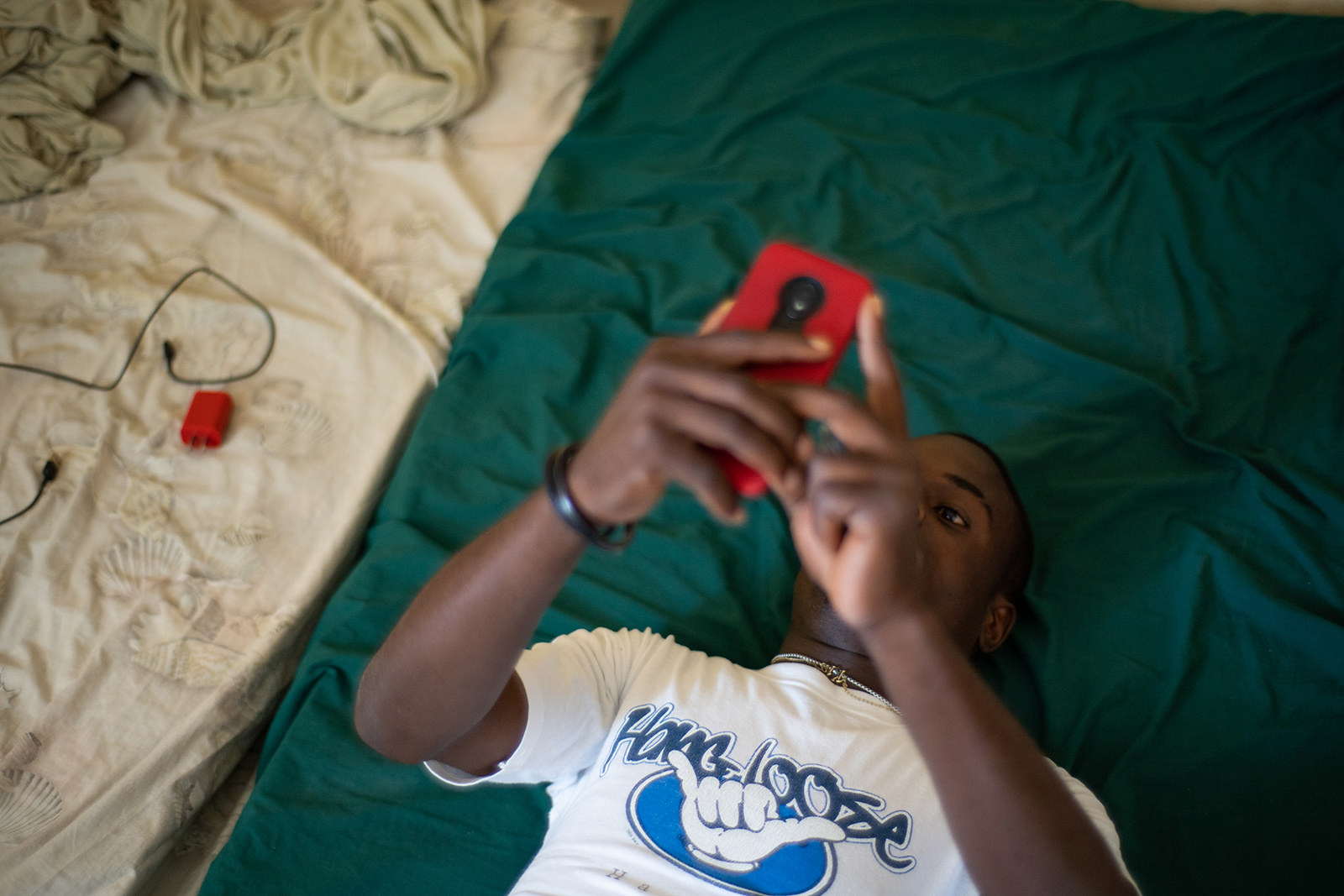
After Duverson was kicked out of La Maison l’Arc-en-Ciel, Pénette said, the orphanage rented a room for him for nearly a year. But that ended after staffers found in his possession items that had gone missing at the facility. Duverson denies stealing anything from the orphanage.
Since then, Duverson has moved around from one room to another and been unable to hold down a job. He has tried selling handmade crafts. A few times he has returned to La Maison l’Arc-en-Ciel in search of customers or odd jobs.
Duverson’s home in December was a small room with no furniture except for two thin mattresses laid out on the floor, which he shared with two other men around his age. In one corner of the room, a half-empty suitcase lay closed, a layer of dust on it. Inside it were the bulk of his possessions: a Bible, a handful of T-shirts and underwear, and notes from a few plumbing lessons he once took but didn’t have the money to complete.
A few days before Christmas, Duverson sat on the floor, holding a half-empty bottle of anise liquor.
He said won’t stop looking for his roots, but he’s not even sure of his name. For a long time, he believed his last name was Augustin — the birth certificate he received in 2014 listed him as Duverson Augustin. He searched for Facebook profiles of people with that last name, contacting at least 40 of them with no luck. Only recently did he learn that his orphanage file had his name as Augustin Duverson, a development that brings new hope to his quest.
It’s one more clue to his past. ●
Andre Paultre contributed reporting to this story.



